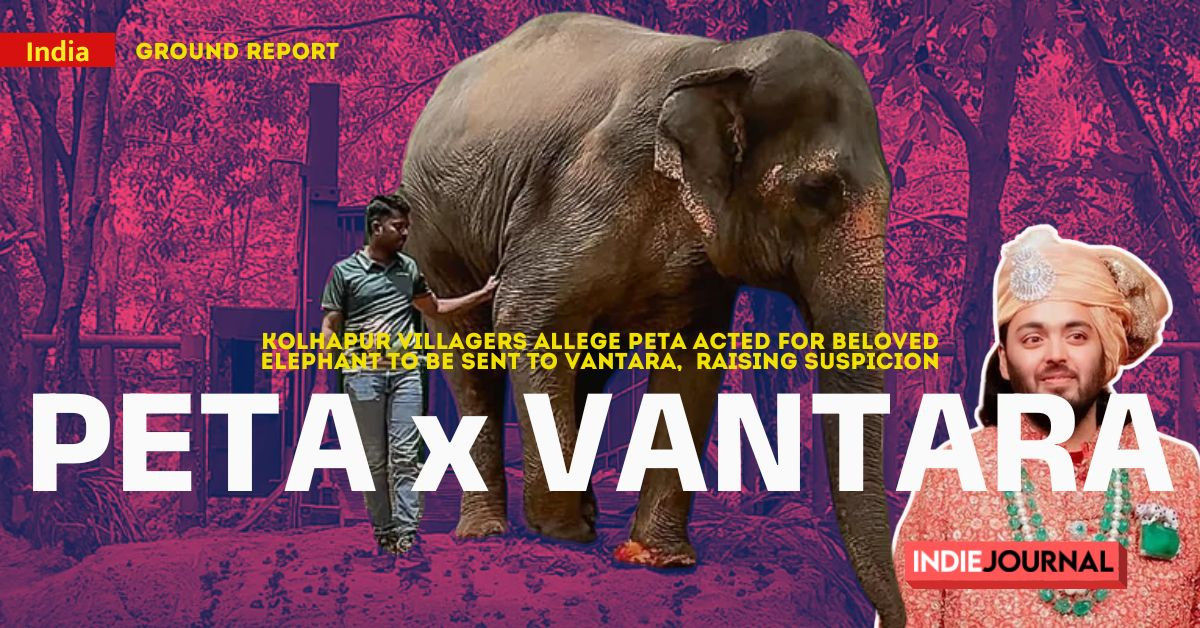India
The Second Wave: Loss, trauma and experience of the Pandemic
Stories of personal loss and trauma ask us to take the virus seriously.

“People are dying all over the world. COVID is certainly not a conspiracy, and no one should fall for such rumours,” said Dr Avinash Bhondwe, Maharashtra President of Indian Medical Association as he addressed the misconceptions around the pandemic that has claimed lakhs of lives across the world. As new infections of the Coronavirus Disease (COVID-19) are once again seeing a surge, discussions around the need to strictly follow the protocol and the possibility of a lockdown-like situation are resurfacing. People opposing lockdown have also begun talking about whether COVID was real or not.
“Yes, I have heard people discussing COVID as if it’s nothing to worry about. But I urge everyone to take the pandemic seriously and follow all the precautions. Only those who have seen it up close know how serious it is and the trauma surrounding it,” says Pune based IT professional Vivek Mahajan, who lost his father to COVID-19 in May last year.
In April-May 2020, when the pandemic was still new and the health infrastructure as well as treatment protocol inadequate, Mahajan faced several challenges to get his father the treatment that he needed. “We had all the resources, but still couldn’t get proper treatment. Finding good hospitals, doctors, was a challenge. Private hospitals weren’t ready to admit COVID patients. My father’s COVID infection wasn’t even diagnosed on time due to a lack of testing at the time. But now that is not the problem. All people have to do is follow rules. It’s all on the public now,” Mahajan shares.
While the health infrastructure was inefficient, in the initial months, there was also a hesitation amongst people to get tested for COVID-19 due to the stigma and fear around the disease. Narrating his experience, Nikhil Borkar, Assistant Professor at Anand Niketan College in Warora said, “My brother was the first to get infected in our house. It started with simple symptoms like a little fever, headache, etc. He also lost the sense of taste at some point. However, even for someone like me, it was difficult to convince my family to get him tested for Coronavirus as it is frowned upon by all in rural areas. Even our family doctor did not recommend the test, and he was only given regular medicines and home remedies for a couple of days initially.”

It was only after he started developing some serious breathing troubles, he was finally taken to a hospital, where he tested positive for COVID. “After this, almost all of us developed symptoms and tested positive. We couldn’t believe we had COVID because until then, we had ensured that we took all precautions and maintained utmost hygiene. Despite everything, we contracted the infection. More than the physical symptoms, the emotional trauma of it was difficult to handle. My mother was constantly worried, and it adversely impacted her health as well. It was challenging to keep everyone’s morale high,” Borkar added.
While many are quick to dismiss COVID as ‘just a flu’, many people who have been through the disease with serious symptoms will tell you the difficult aftermath of the disease, weeks, sometimes even months, after recovery. The entire family of Jaswant Patil from Bhusawal had tested positive for COVID, including his elderely grandparents with comorbidities. He said that while everyone survived the disease, it took them over two months to recover physically, but mentally they are still not over the ordeal. “When I realised that my whole family was COVID positive, my worst fears started crawling in. I had seen a friend of mine lose his father to COVID. The fear of losing my parents, my brother and my grandparents gave me nightmares. I would see people die in front of my eyes every day in my unit. I would stare at ceilings and walls for hours thinking about 'What if'?” Patil shared.
He also added that he and his family members had frequent health issues in the months that followed, with fever and cough, for which they had to take heavy doses of medicines. In fact, many people have experienced prolonged weakness, inability to focus and other health complications during and after recovery to COVID. People have complained of not being able to sit and work for long hours as they did before memory issues, and so on.
India’s active COVID-19 cases reached 1,59590 as of Saturday morning (February 27th). As per the Union Ministry of Health, six states, Maharashtra, Kerala, Punjab, Karnataka, Tamil Nadu and Gujarat, have shown a surge in new cases in the last 24 hours. However, Bhondwe said that this time around, the governments as well as the health workers are more prepared. “Last year, when the pandemic began, treatment was unclear, testing was much lesser, so the situation was more difficult to handle. This time, it has become a routine for the doctors to handle COVID patients. Government hospitals have been stocked with medical supplies and equipment. COVID centres and private hospitals are also ready,” Bhondwe said.
However, he also added that people still need to be made aware. “Contact tracing must improve in order to identify and quarantine COVID positive people in time. The government needs to improve tracing. At the same time, people must be made aware and encouraged to come forward for testing so as to curb the spread of new infections, especially with the new strains of Coronavirus in the picture,” Bhondwe explained.
(With inputs from Prerana Deshmukh)





